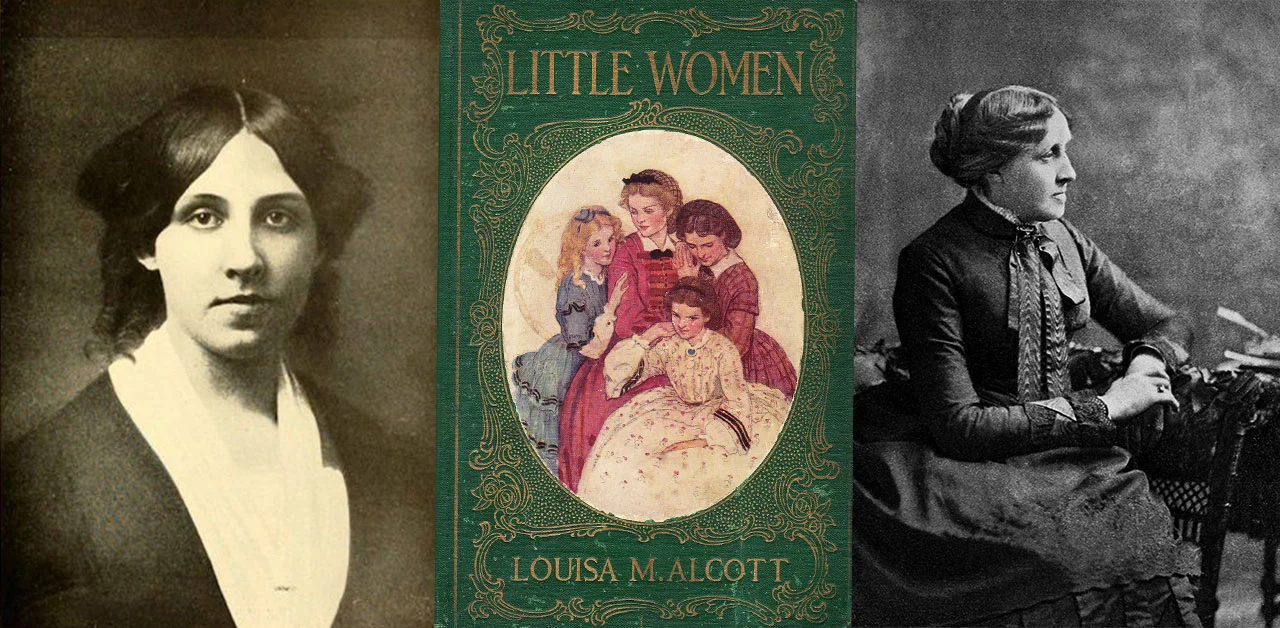Louisa May Alcott is best known for Little Women, the beloved 1868 novel chronicling the lives of the March sisters as they grow up in Civil War-era New England. The novel, often read as a gentle portrait of domestic life, carries emotional depth and moral complexity that extend far beyond its surface narrative.
What many readers may not realize is that Alcott’s time as a nurse during the American Civil War played a foundational role in shaping the emotional realism, themes, and character development found in Little Women.
Alcott’s own life, marked by hardship, idealism, and service, is inextricably tied to the world she created. Her brief but intense experience as a war nurse gave her intimate insight into suffering, sacrifice, and the strength of the human spirit—insights that would find powerful expression in her fiction, even when that fiction focused on the lives of young girls.
From Concord to Washington: Alcott’s Service Begins
In 1862, at the age of thirty, Louisa May Alcott volunteered as a nurse for the Union Army. Though she had no formal training, she was determined to serve. She was assigned to the Union Hotel Hospital in Washington, D.C., where she worked for six weeks before falling gravely ill with typhoid pneumonia. Though her service was short-lived, the experience left an indelible mark.
Alcott’s time in the hospital exposed her to the grim realities of war. She nursed wounded soldiers, many of whom were young and frightened, and she dealt firsthand with death, infection, and inadequate medical conditions. The emotional toll was immense, but so was her compassion and resolve. These weeks were later recorded in her memoir Hospital Sketches, published in 1863, which gave readers a vivid and empathetic view of wartime caregiving.
War as a Moral Testing Ground
One of the central values in Little Women is moral development—how individuals grow through adversity, make sacrifices, and find purpose in service to others. This theme, while consistent with the transcendentalist ideals that shaped Alcott’s upbringing, takes on a more grounded and personal tone after her nursing experience.
During her time in the hospital, Alcott witnessed ordinary people performing extraordinary acts of courage and compassion. She saw how trauma could strip away pretenses and reveal core character. This perspective informed her portrayal of characters like Meg, Jo, Beth, and Amy as they grapple with personal hardship and the broader consequences of war.
Though the battlefield remains distant in Little Women, the impact of the war is constant. Mr. March, the girls’ father, is away serving as a chaplain; Beth’s illness is exacerbated by her efforts to help a poor family; and the girls must mature quickly in his absence. Alcott’s depiction of these circumstances carries the weight of lived experience. She understood that war reshaped not only nations, but also households, expectations, and individual identities.
Beth March and the Quiet Heroism of Care
Perhaps the character most directly shaped by Alcott’s nursing experience is Beth March. Though shy and fragile, Beth embodies a quiet strength rooted in empathy and self-sacrifice. Her illness, which eventually leads to her death, is portrayed with the same tenderness and realism Alcott brought to her hospital sketches.
Beth’s decline is not dramatic, but gradual and deeply affecting. The emotional core of her story lies in how she cares for others even as her own health fails. This emphasis on caregiving as a form of heroism reflects Alcott’s deep respect for the nurses, volunteers, and caregivers she worked alongside during the war.
In Hospital Sketches, Alcott wrote movingly about the silent endurance of wounded soldiers and the resilience required of those who tended to them. That same ethos is present in Beth: her gentle nature is not weakness, but a quiet echo of the strength Alcott witnessed in the hospital wards.
Jo March and the Awakening of Social Responsibility
Jo, the most autobiographical of the March sisters, reflects Alcott’s ambition, creativity, and struggle with traditional gender roles. But Jo also undergoes a transformation that mirrors Alcott’s own moral awakening during the war.
Before her father’s absence, Jo is headstrong and independent, focused on writing sensational stories and pushing against societal expectations. Yet as the family adapts to wartime sacrifices, Jo matures. She begins to see her writing not just as a creative outlet, but as a means of contributing something meaningful. Her decision to cut and sell her hair to raise money for her father’s care, while symbolic, is also deeply practical—demonstrating a willingness to give up part of herself for the good of others.
This evolution in Jo’s character reflects Alcott’s belief in using one’s talents for social purpose—a belief crystallized during her time in the war. Serving others, even in small and painful ways, becomes a recurring moral touchstone in Jo’s development and the novel as a whole.
A New Vision of Heroism
Unlike traditional war literature, which often celebrates battlefield glory, Little Women offers a different kind of heroism. Its characters are not soldiers, but their struggles are no less poignant. Alcott redefines courage through domestic sacrifice, emotional resilience, and ethical growth.
This redefinition is no coincidence. During her hospital tenure, Alcott encountered a kind of heroism that did not involve charging into battle. Instead, it involved cleaning wounds, holding dying hands, and maintaining hope amid despair. The ability to endure, to love, and to care became its own form of valor—one that she carried into her writing.
In Little Women, heroism emerges in moments of tenderness and resolve: Marmee’s quiet leadership, Jo’s support for her sisters, Beth’s unwavering kindness. These characters were modeled not on military figures but on the everyday people Alcott came to admire during her time as a nurse.
Realism, Humor, and the Everyday Struggle
Despite the serious undertones, Little Women is not a bleak novel. Alcott balances hardship with warmth and humor. This balance likely stems from her own ability to find meaning and even lightness amid the darkness of war.
In Hospital Sketches, she often used wit to cope with grim conditions, describing absurd hospital bureaucracy and her own fumbling attempts to learn medical procedures. This ability to find levity in suffering infuses Little Women with emotional depth. The girls’ laughter, bickering, and dreams are not distractions from reality—they are strategies for surviving it.
A Life of Service Reflected in Fiction
Louisa May Alcott’s time as a war nurse was brief, but it changed the way she viewed the world and informed the stories she told. In Little Women, she transformed her firsthand experience of suffering, caregiving, and sacrifice into a narrative that honors resilience not through grand gestures, but through quiet, persistent compassion.
By embedding the values of service and endurance into her characters, Alcott created a novel that continues to resonate—not just as a tale of sisterhood, but as a testament to how deeply a writer’s life can shape their fiction. In the March sisters, especially in Beth and Jo, we glimpse not only Alcott’s imagination, but her empathy, her ideals, and the hard-earned wisdom of a woman who saw war up close—and came home with stories that would outlast it.


